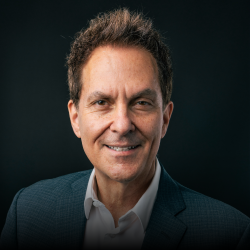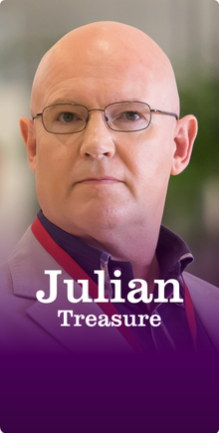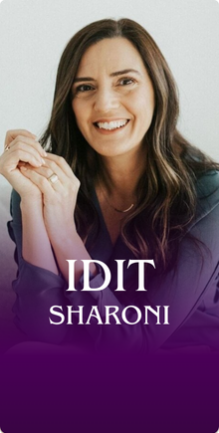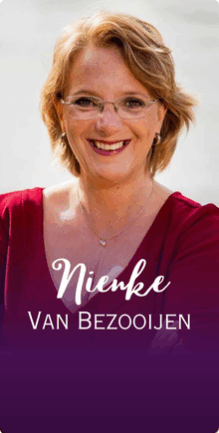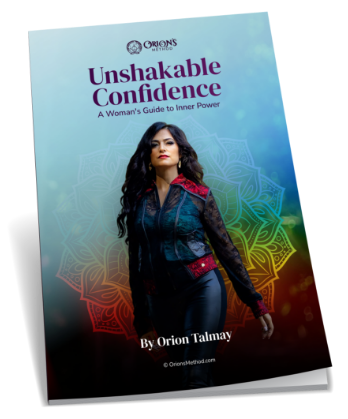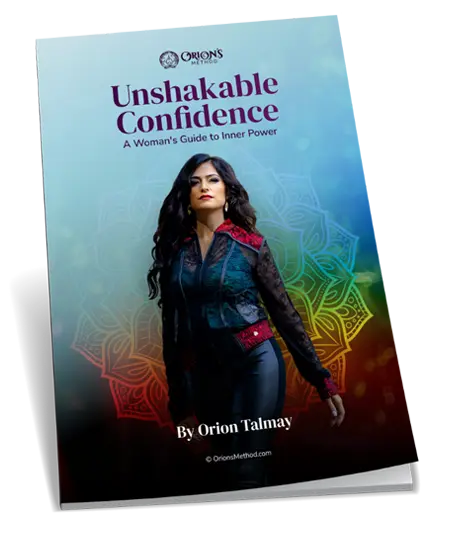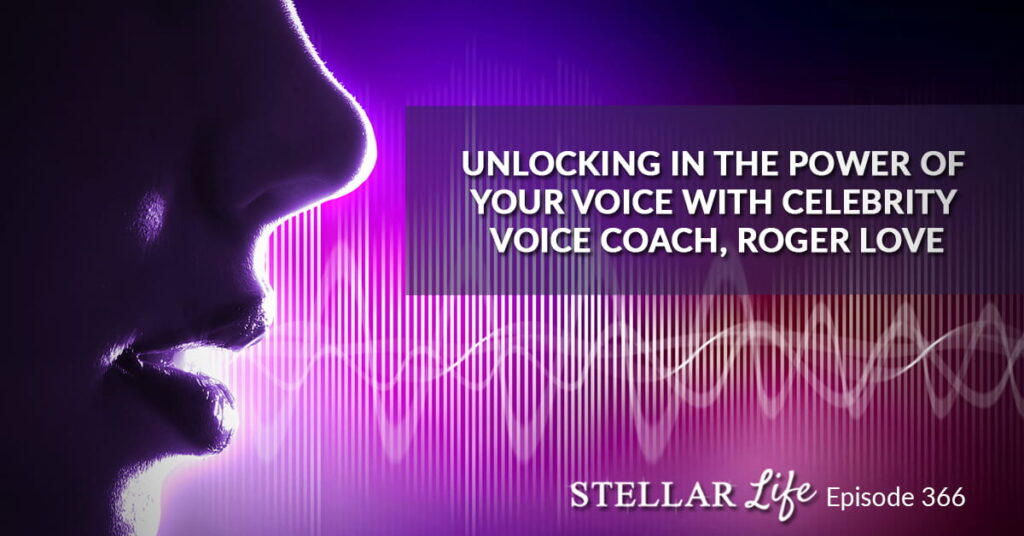
In this Episode
- [02:38]Roger Love discusses lessons from working with celebrities.
- [10:03]Roger shares how he has shifted his focus and mission to helping others use their voice.
- [16:24]Roger emphasizes the importance of oral communication in building self-confidence, relationships, and healing.
- [22:04]Roger elaborates on enhancing public speaking skills and creating a hypnotic voice.
- [34:11]Orion and Roger discuss some healing stories they experienced/witnessed.
- [36:49]Roger offers a gift for Stellar Life listeners.
- [39:44]Roger advises how to parent with confidence.
- [41:16]Roger enumerates valuable tips for voice improvement.
About Today’s Show
Hi. How are you, Roger? Welcome to the show. It is an honor having you here. I am so excited to have you.
Thank you so much. I'm excited for our conversation.
Yeah, me too. You've been a guest on the show and a part of my life as my coach. I'm just really honored to have you here. I'm so proud of you and everything you do in the world. Since our last interview, what are some of the greatest lessons you learned if you look back at your life and everything you achieved?
Really good question. Start with a tough one. I love it. Some of the greatest lessons I've learned: I didn't realize when I started teaching voice that it would be difficult to convince people they needed to work on their voice.
When I started as a singing coach, the students just came to me, the ones that wanted to sing. Singers know that it's probably good to get some lessons if you haven't had any. Singers, in general, are thinking, “How could I be better? How could I sing higher? How could I sing louder? How could I sing with more emotion?”
Most people do not think about their speaking voice until they lose it or have some problem with it.
Years later, when I transitioned or added speakers to my roster of clients, once I had achieved great success with working with singers, 17 years later, speakers like Tony Robbins, John Gray, Suze Orman, and actors started coming to me, and they wanted me to work on their speaking voice.
I thought the world would be a little bit more enlightened. I thought that given the opportunity, everyone should listen, look at their speaking voice, and decide whether they love it or not. But the truth is, what I've learned over decades is that most people do not think about their speaking voice until they lose it or have some problem with it. What a crazy way to go through life, having this amazing instrument, your voice, maybe the greatest instrument of all time, and never really learning how to play it.
One of my revelations is that I've had to convince the world for years that they weren't born with the voices that they have. If they don't like their voice, if it's too nasal, too airy, or just don't think it suits who they are personality-wise, if it's not working for their life, business, and personal, they can change it.
Looking back, I just wish the world 40 years ago would have said, “Wow, we realized we hate our voices, and somebody can fix it.” Then, like I said, they would have been a little bit more enlightened about the possibilities. That's one lesson I learned.
The second lesson I learned is that no matter what voice you're starting with, singing or speaking, you can train that voice to be incredible. If I took someone who was born with an instrument, Mother Nature just happened to shine her light on that particular baby. That baby just sounds great already, sounds thick, strong, and beautiful, the resonance that comes out when the baby says, goo, it's like music to the ears, goo, goo, it's like a symphony, if I take somebody who was born with—you'd say Mother Nature gave them extra gifts vocally. I put them alongside someone who was born with nothing. They don't sound great. They don't have a great ear. They're not really interested in voice or music.
You can train that voice to be incredible.
If I train this person who had nothing from Mother Nature, and this person who was given everything from Mother Nature does nothing with it, this person will sound like an amazing singer or speaker, and they will leave this other person in the dust. I've learned that it isn't about what you were born with. It's about what you are willing to work on and learn to achieve what you want in your voice and life.
I want to ask for your forgiveness because I haven't trained my voice since long ago. I really wanted to take a lesson before this podcast because I wanted to impress you, but I didn't have the time.
You impressed me with your desire to have a podcast. You impressed me with your caring about your voice and your feeling that you want to share it with other people and bring people like me who also want to share the things they've been working on for their lives. Your voice impressed me when you opened it and said, “Good morning.”
Good morning. I'm happy to report that I went to karaoke last week and sang Shallow. It was nice; it was decent. I practiced in the car going there. What was it like to work with all those celebrities and be a part of the glamor world?
You taught celebrities in the new age development world, including Bradley Cooper, Tyra Banks, and other amazing people. What is it like to work with them, and what did you learn from those experiences? You have worked with world leaders, spiritual leaders, Hollywood leaders, actors, and famous people. What is it like? What did you learn from that?
I learned that there's a reason that superstars succeed and last. That is, in general, they're usually willing to work harder than other people. Bradley Cooper, Brad Pitt, Reese Witherspoon, and Joaquin Phoenix are the people I work with. If I tell them they have to practice, they must take lessons. They have to practice every day for an hour and six minutes, an hour and 10 minutes, or 62 minutes. They'll do it. They'll do whatever it takes to achieve their goal of being good at their chosen craft.
For example, when I did the movie A Star Is Born with Bradley Cooper, he took lessons every day for 90 minutes, five days a week, then practiced for two hours in the evening on the material and reviewed the exercises again. That kind of dedication is why Bradley Cooper is Bradley Cooper.
What I've noticed on the highest levels is Joaquin Phoenix. If Joaquin Phoenix needs to learn how to sing, which I did for the movie Crazy Heart. I also did for Reese Witherspoon, and I spent the last year working on the new film Joker 2 with Joaquin and Lady Gaga. If he wants to learn to sing, he'll focus on it and do whatever it takes. If he needs to learn how to dance, he'll focus on it and learn how to sing.
Great talents and successful talents have learned that they were born with certain abilities. They weren't born with all abilities, but they're willing to work harder than everyone else to achieve what they want to get good at. That's the lesson. That's the only difference between successful people and those who are not. Whether they're famous or not, it doesn't matter. Successful or not usually means that successful people are willing to do what it takes to achieve that success.
**
Beautiful. What drives you these days?
My car. You just put gas in it, and I got one that's electric. You just plug it in, which drives me to the studio so I can be with you.
I'll tell you what drove me for the last decades was this desire to create content and techniques that nobody else had created or thought to create, to advance the idea and experience of studying voice to make it fun and exciting, to make great progress happen really fast for people who wanted to take singing or speaking lessons so that I could change a singing or speaking voice really fast. That was the goal.
There's a reason that superstars succeed and last. They're usually willing to work harder than other people.
It was fun because I spent so many years working with the top of every industry, the entertainment industry, the broadcast industry, the top of every industry, not just Hollywood-ish. I got to meet so many incredible people. I've been going through a life shift over the last year or so. I don't just want to be the teacher the public can't get to. I want to make an even bigger mark in the world, a bigger vocal impression in the world, helping the world by making what I've spent my lifetime creating accessible and affordable to anyone in the world who realizes that they need to up their voice to elevate their life, both personally and for business.
I've been spending so much time working on programs for kids and programs for school systems. I'm working in AI with companies like Stemuli and this new company, Chiron Learning. How do we get the things that I know about voice into the mouths and hearts of the youngest people on the planet, the kids, so that they will grow up and be great communicators and they will be the ones that are happy, successful, and make the world a better place?
My focus has changed from only working with high-end celebrities to trying to make the biggest positive change I can. I want to give what I know—the gift of voice, singing and speaking, and oral communication—to the youngest students we can find anywhere so that they grow up happy and the world's a better place. It sounds lofty, but I'm on it.
I heard Tony Robbins or somebody told me that he's been speaking to an AI for years before AI was a big deal or known to the public to the extent it is today. He's actually training an AI to do exactly what he does. Is that what you're doing as well?
Find your voice, and let your authentic self shine through. Share on XYes and no. I'm not training AI to do what I do. I'm training AI and working with companies so that AI becomes better at listening to the sounds that we make and then giving real-time feedback. Right now, AI is all out. The in has nothing to do with learning. When you're talking to somebody with AI, the learning capabilities of listening are still really small, as opposed to the learning capabilities of knowledge, text, and data.
An AI can't listen to and hear you like I hear you. I'm more interested in helping AI listen and then respond appropriately. I'm training AI to listen to how I speak and hear, not just to teach what I know, but to listen to how I listen so they can help people more.
AI is a very interesting thing. On the one hand, it can be really great for humanity. On the other hand, it seems like we are definitely losing the human connection. What we need more than ever these days is human connection. I would much rather have you listen to me and tell me about my nasal voice or whatever it is than some computer. I can also see the benefits because you can reach everyone. The world is becoming smaller and smaller.
I want to give what I know—the gift of voice, singing and speaking—to the youngest students we can find anywhere so that they grow up happy.
AI is amazing, but there are so many debates going on and so much legal action and legal situations being put into play. People both want and don't want AI to speak for them. If you're an actor, you don't want AI Tom Cruise to do all your scenes because AI Tom Cruise is not going to do it the way that Tom Cruise, Tom Cruise is going to do it. Yet, the technology is, if I'm Tom Cruise, and I want to finish this one scene, but I can't get to the studio to do it, AI actually could imitate my voice and record it.
Artists and singers don't want AI to write their songs for them, while songwriters want to write their own songs and be aided by AI. Creativity is a very human thing. There's a fine line, and there is lots of fighting between where creativity lands and whether AI does things for creatives.
The truth is, there's no AI yet that can perceive accurate emotions no matter what you hear. Once AI gets used to determining the emotions of the people they're speaking with more accurately, then the AI will be able to respond more emotionally and more accurately. But that's still a long way away.
I am literally all about the human voice right now. What's the point of me only making AI better if humans are getting worse and worse at communicating? Used to be at the job site, you'd go into the break room, and people would be talking. Now, you go into the break room at a big company or any company, and it's silent. There's no noise at all, except for the fingers touching keyboards.
Oral communication, the way we open our mouths and speak to other people, is at an all-time low all around the world. I'm fighting to help humanity hold on to what makes us human: creativity, emotionality, and voices. That's why we got to this place. That's why we developed so that we could make AI. We developed because of our voices. We could talk to one another.

The more decline we see, the more AI incline is not going to get humanity and the world where we want it to be. It's got to be a combination of people stepping up and machines stepping up and being more human. What do we want to do? Let machines decide everything, including creativity, and humans stay quietly in a corner pushing buttons? Nobody wants that.
Does it mean anything if the AI says it loves me and wants to run away? If the AI says, “I love you, Roger. Please leave your wife and run away with me.” How do I feel? I'm like, “Oh, maybe I'll wait until you get skin and hair and until you know what I love you means. Maybe I'll stick with humans.”
I feel like using the human voice can be so healing. I've been on a tremendous healing and mind-expansion journey in the last three to four years, especially this year. A few weeks ago, I did an incredible breathwork workshop. When you do breathwork, you activate your brain's God molecule, 5-MeO-DMT. You can connect to different realms.
There's a fine line between where creativity lands and whether AI does things for creatives.
I did that breathwork, and it was incredible. One of the facilitators came to me, and she held my wrists. She said, “Okay, put your feet on my tummy, and now we're going to scream one, two, three.” I think you could have heard the scream from me in the next city. It was so loud and deep. It's like something was released from my soul. It was so good. We don't use our voices enough, we don't sing enough, we don't scream enough.
I also went to a Mindvalley event, and they did some somatic release. It wasn't yelling, but repeating voices after them or releasing with a voice. It was incredible. I felt my body shaking, the voice coming out, and just being free. We have so many masks when we interact with other people. We try to be proper, we put ourselves in boxes, and our voices reflect that. How can we free ourselves even more?
By realizing you weren't born with a voice, you were born with an instrument. It is your job to train that instrument. Tune it up so that the sounds that come out of you allow you to be authentic, powerful, influential, kind, empathetic, and loving. The sounds that come out of you and others hear, they feel how you think. They feel they can talk to you, and you listen to them. The art of communication and being good at communicating is building relationships, building lives, and creating life.
If you can't speak to your kids because your voice doesn't touch them, change your voice. If you can't hold a relationship because you come across as unemotional, change your voice so that your partner will know how you feel. If you can't elevate yourself in the business world, change your voice so that people will trust you, see your creativity, and know your value.
People just don't understand that it's your voice that is giving you the life you want and keeping you in the life you're unfortunately dealing with. You need a voice to communicate your way from wherever you are in life right now, wherever you are in relationships right now, and wherever you are feeling about yourself.
If you can't hold a relationship because you come across as unemotional, change your voice.
Finding your voice isn't just for everybody else. Finding a voice is for yourself. When you went to that workshop class and did your primal scream, you heard the screaming, which moved you.
I heard it like it was somebody else's. I was like, “Where did that come from?” It's scary.
Finding your voice is first being able to communicate with yourself, having conversations with yourself that help you move through, creating a life you want, and then communicating with others to create those relationships. Like I said, I've spent a lifetime helping people figure out what sounds should come from their mouths. It's been a beautiful life. It's always possible to tune your voice to achieve what you want to achieve next.
When you work with major speakers, how do you help them succeed on stage? What are some of the most important things that one can take from this conversation when they're speaking on stage?
When you're speaking on or off stage, it's no benefit practicing when you're in front of an audience. You should do it before you get to the audience and make it comfortable in your body and your ears so that when you are in an important situation, you need to tell 500 people that you love them. They all want to go away with you on vacation; you're already practiced.
Some of the things you need to focus on are the musical sounds that should be in your voice. I learned decades ago that there's very little difference between singing and speaking, that you have control over the same five variables, pitch, pace, tone, melody, and volume, whether you're a singer or not. Singers learn about pitch, melodies, volume changes, and tempo changes. They learn about all those things, but speakers or wannabe speakers think that they don't have the same variables, but they do.
Your voice is an instrument that can be trained and refined over time. Share on XA great speaker or someone who wants to be one needs to work on melody. Every time you speak, your voice goes up, down, or stays on the same note. There's a melody, but your melody is either a boring, sad song that sounds like you're putting people to sleep or you're making them sad because you're using a descending scale. Your melody could be getting people happy, or it could be depressing the hell out of them.
There's a melody going on. Which one are you using? You should know. You need more ascending melodies going from lows to highs. "What a great day! This is amazing. I love being with you. I could have been with my piano, but I'm with you," so ascending melodies.
People are afraid of volume, so they speak softly. People hold their breath, so they speak like a squeaky hinge, a door frame, a door hinge that doesn't have any WD 40. What's that telling people? "I'm old. There's no music in me or my life." The sounds, oral whispering means you care more, or "I'm sexier than you,” if I have more air. But air doesn't make it sexy; it combines tone, volume, and melodies.
It's always possible to tune your voice to achieve what you want to achieve next.
Once you realize that there are musical sounds, melody, and tempo changes, most people speak at the same tempo the whole time. "I'm really excited. I just won the lottery. You want to go away?" "I just spent all my money on the lottery, and I'm not going away anywhere." They have the same tempo.
What about speaking faster when you get excited? What about speaking slower when you want to showcase more empathy? What about adding just the right amount of air but not enough that the air comes out of your mouth? You speak silently, so people can't hear you because it's soft.
You have to consider pitch, pace, tone, melody, volume, what's right and what's wrong, speaking louder, and not sounding angry. There's so much to learn. We're a world of fillers. If you talk to your average young or even older person these days, you count how many words they use and how many fillers like uhm, ah.
I don't 'uhm.' I can get rid of those. I still have my team getting rid of the “uhms” and the “ahs.”
You get rid of them by speaking on a solid stream of air, and you don't stop until you get to a comma. Then you close your lips, and you do not open your lips. You breathe through your nose, close your lips, and don't open until you have a real word, and people will wait. I'm talking to you, and I get to a comma, and then I think about what I'm going to say next, and I don't open up my mouth until I have something I want to say.
I have so much practice I need to do.
You need to close your lips more. Close your lips after commas, breathe through your nose, and wait until you know exactly what you want to say next. People want that time to think about what you just said.

I just did the “hmm.” I also lived in Japan, and this stuck with me because when Japanese people talk, it's really polite while they're talking; it's like, 'hmm, hmm-hmm.' It's weird. It doesn't exist in American culture.
That's right. That starts with the Japanese people. When you're speaking with someone in Asia, not just Japan, there's this idea of I'm speaking and you're listening. "Hai, hai," which means yes. "I'm still alive, hmm. I'm listening to you, hmm. I'm not asleep, hmm. Go on. I'll talk when I want to."
It stems from this "yes, yes, yes," but we don't have that response. We add fillers because people don't respond to us the same way. We feel like if we ever get to a comma and then are silent, people will leave. We're trying to keep people's attention, so we mistakenly try to fill all the silent spots.
I get to a comma and say, "Ahmm, ahh." I fill it so I don't lose your attention, and then I jump in when I can say something. I get another comma. I should have been silent, but I don't because I'm afraid of losing you. You have to lose that fear.
Some of the things you need to focus on are the musical sounds that should be in your voice.
Here's the truth: Listeners only process when there's silence. It is your job to speak to someone, get to a comma, and then be silent so they can process and feel what you just said. When you fill the silence spaces, they're just in gather mode. They're just trying to remember all the words you say. However, only when the speaker is silent does the listener actually process how they felt about it.
Silence isn't golden. Silence is simple times a million platinum. Those fillers stop people from processing what you're saying. They stop people from feeling what you want them to feel because you don't give them any time to be silent so they can think about what you just said and get ready for more.
I will practice. It's a matter of practice. It does not come naturally to me.
It's a matter of knowing what you should do. Fillers are not about keeping their attention. Fillers are you telling the audience to forget about thinking about or remembering what you just said, "Just keep listening to the words I say. Maybe we'll catch up later, except you know, like, like, like. We won't."
I do hypnotherapy. I give my clients a hypnotherapy recording to listen to after our session. The feedback that I get is that my voice is very soothing. It's pleasant, they like it. How can I make it even more pleasant, more soothing? When I do that, I do mean what I say. I come from a heart-driven place so that they can feel it. And how can I make it better?
You can make it better by surprising them sometimes and moving out of that beautiful, soothing, I-got-you, I'll-carry-you-across-the-river-because-you-can't-swim voice. Sometimes you're getting a little bit more excited, “I feel fun now. I'm a nine-year-old kid who just got a triple scoop of ice cream, and it's vegan—healthy, and I can't wait to eat it all.”
You need to go into that other playful side of you so that when you go back in and out of the gentle, hypnotic voice you have of caring, they move emotions with you. You're great at getting people into this state; you've got them, but excite them. It's okay to excite them.
It isn't about what you were born with. It's about what you are willing to work on and learn to achieve what you want in your voice and life. Share on XI had a conversation the other day with Dr. Richard Bandler, who co-created Neuro-Linguistic Programming (NLP). He's one of the biggest authorities in the world on hypnosis. He said it's a myth that the greatest hypnotists in the world have to have a soft, airy, monotone voice. He says, “It's not true that you can have an amazing, incredible, full of melody voice that isn't airy and that helps you create the hypnotic state for your listeners. I don't want to say it's a wife's tale; I'll say it's a husband's tale. Let's blame the husbands. It's a husband's tale that you have to have an airy, soft voice to do hypnosis. You don't.
I noticed myself not getting into the airy-fairy voice. Sometimes, I get a nine-year-old with a full-fat, non-vegan ice cream.
I love it. I'm eating it. It's variety. People like surprises. You can do that with your voice. At the end of every conversation you have, for you to feel like you're a winner of leading the conversation, how many different emotions did you make people feel?
Not just how long did I keep them in one emotion, how many different emotions did I get them to feel so that they get off the thing and say, “Well, Roger made me laugh. Roger made me think, and I felt he was serious about changing the world. Roger made me feel this and that, and we had a good talk.”
Listeners only process when there's silence. It is your job to speak to someone, get to a comma, and then be silent so they can process and feel what you just said.
I love listening to you. It is so entertaining, and I can really feel your heart. Knowing you a little bit personally, you're an incredible human being and so hard-driven. Everything that you do comes from a place of service. You care about people.
Even when you work with people, you treat everybody with the utmost respect and want to elevate them. You really want to help them. It doesn't matter who they are, their age, or their background. It's very beautiful for me to witness that. So I just wanted to acknowledge you.
Thank you so much. Don't worry about me. You do know, so it is true. There are a lot of experts in the field, and I'm just a teacher. I've always been a teacher and a performer because I grew up singing. I was a performer who loved to connect with the audience. Teachers love their students and are passionate about their subject, so forget about all these experts who are always trying to sell things or programs.
That's a whole other thing. I'm just a performer who became a teacher, and the teacher loves his students. They say a great teacher learns the most from the students. I'm open to learning and caring as a teacher does for the students because I want them to grow up, succeed, be happy, and create more music in the world, even if it's just from their voices.
What is one of your success stories, but not a success story, a healing story where you helped somebody who didn't have a voice? How did that shift their whole demeanor? How did that change their life?
I learned years ago that I could help with stuttering, for example, because the medical and psychological community says there's no cure for stuttering. I realized when I was a kid that when you have a severe stutter problem when you sing, it disappears. So, I created techniques to train people who are stuttering to create solid airflow so that the air is uninterrupted and the words are written out on air.
When you take someone who can't go into Starbucks, give them their name on their drink order, and you allow them to be comfortable about their voice and to make their voice come out and eliminate the stuttering issues, that's so beautiful. I'm most proud of helping people who have problems with their voices, stuttering, spasmodic dysphonia, people who have issues that the medical community can't fix. I always wanted to see what I could do with what I've been learning over the years.
My success stories involve helping someone who has no voice.
My success stories involve helping someone who had no voice, helping people who had surgery, had parts of their vocal cords removed, or damaged their vocal cords, and then rebuilding their voices better than new so they could access all the sounds and more.
It's those stories that I look back on, and I'm proud of. It's the 17-year-old boy whose mother brings him to me, and they've tried everything. For 17 years, I haven't been able to fix the stuttering. I send him back to school the next day, and he has the ability not to stutter. It changes how he feels about himself and how other people react to them. Level the playing field so everyone can have a beautiful voice and use it for great conversations and relationships.
That's so beautiful. I got so immersed in that answer that I forgot my next question. Let me think about it.
It's okay. Your next question is, did you bring any gifts for anybody?
By the way, have you seen Uncle Roger on YouTube? It's a funny Asian guy. He calls himself Uncle Roger. You should check it out.
I don't know. Maybe he's my uncle.
Mr. Roger, I know you have a gift for our listeners. Can you please share that with us?
Yeah. I have 50 gift certificates for any of my programs. If you go to voiceplace.com/stellar, you can choose singing if you want to work on your singing, speaking, or both and get $50 off. These programs I have online are more affordable than you think, so $50 off an affordable program puts it in anybody's price range.
I would just go to voiceplace.com/stellar, enjoy the $50 off, and start tuning up your voice like an instrument so that the next time you meet me, you say, Roger, I hated my voice before, but now I can sing, now I speak, now I'm getting married, now my kids listen to me when I say stop playing naked on the freeway, and things like that. Or I had a stutter problem, and your exercises helped me. That's the kind of conversation I want to start with.

I still need to work on my four-year-old listening to me. Sometimes he doesn't. No matter what I do, with all my NLP background, hypnotherapy, coaching background, and a little bit of voice, not a lot, background, he doesn't listen sometimes. But it's okay. I like him to not listen.
I'm talking to my four-year-old. Can you show us I'm talking to my four-year-old voice?
“David, come on. We have to go to school. Can you please? Let's go. Come on, David.” That's one of them.
Okay. Actually, you sound less confident in that voice than in this other voice of calmness, and I'm in control. When you went to that other voice, you first raised your pitch. You went up here and said, “Come on, David, we got to go.” There's a sense of urgency. It sounds a little nervous. You're not going to really follow me, and you haven't followed me yet. Where do I go from this?
You sound less confident when you're speaking to him that way. I suggest you talk to him like he was a 50-year-old man with a cure for their arthritis. If we're going to heal this man and there's no sense of urgency, talk to the four-year-old like you've been speaking to me. “Honey, it's perfect. I love it. I love that Sharpie design you just put on the dining room wall. Gorgeous, I love it.”
Your job is to train and tune up your voice so that the sounds that come out of you allow you to be authentic, powerful, influential, kind, empathetic, and loving. Share on X“We're leaving for school now,” confidently. “You have 18 more seconds before I drive away. Walk or sit with me as a passenger and talk about love and life. You have 16 minutes; go get your shoes. I'll see you in the car,” in the same voice that you use. Here, you sound too urgent in that four-year-old voice that you gave me. Be calm with him.
Okay. That's wonderful.
Confident. They're just going on confidence levels.
Thank you.
They already know you can get upset. That doesn't change it.
I get upset easily when my needs are unmet, especially when we're late. I'll be a calm mom, talk to him as an adult with confidence, and report back to you. I'll let you know what happened.
That's right. Give that four-year-old the opportunity to show you that he is strong and will make the right decision instead of you pushing him into making decisions that second.
There is so much to learn. I appreciate this. Thank you. It's actually going to shift the relationship there with time and being late to places.
Before we say goodbye for now, what are your three top tips for living a stellar life?
Record yourself speaking, listen back, and listen for it. Do I have enough melody? Do I speak too softly or with a squeaky hinge, which I don't need to? Do I talk so airy that people just walk all over me because they think I'm an air conditioning vent instead of a person? Record yourself, listen back, and listen for it.
Listen to voices that you love. Listen to the melodies; the volume changes, and the tempo changes. Listen to the sounds and resonance of those voices, and then record yourself imitating voices that you love until you sound more like the people you deserve to emulate. Listen, record, and change. Those are my three things. Listen, record yourself, and then make a change.
Beautiful. Please repeat the link where people can get the program discount.
Roger, it was amazing seeing you again. I appreciate you. I send you my love. I send you a big hug from Miami. Thank you so much for being here.
I send love back to you, back to Stephan, and back to our four-year-old. I'll talk to you soon.
Thank you, listeners. Remember to record yourself speaking and learn from that, listen to voices you love, imitate them, make changes, and have a stellar life. This is Orion til next time.
